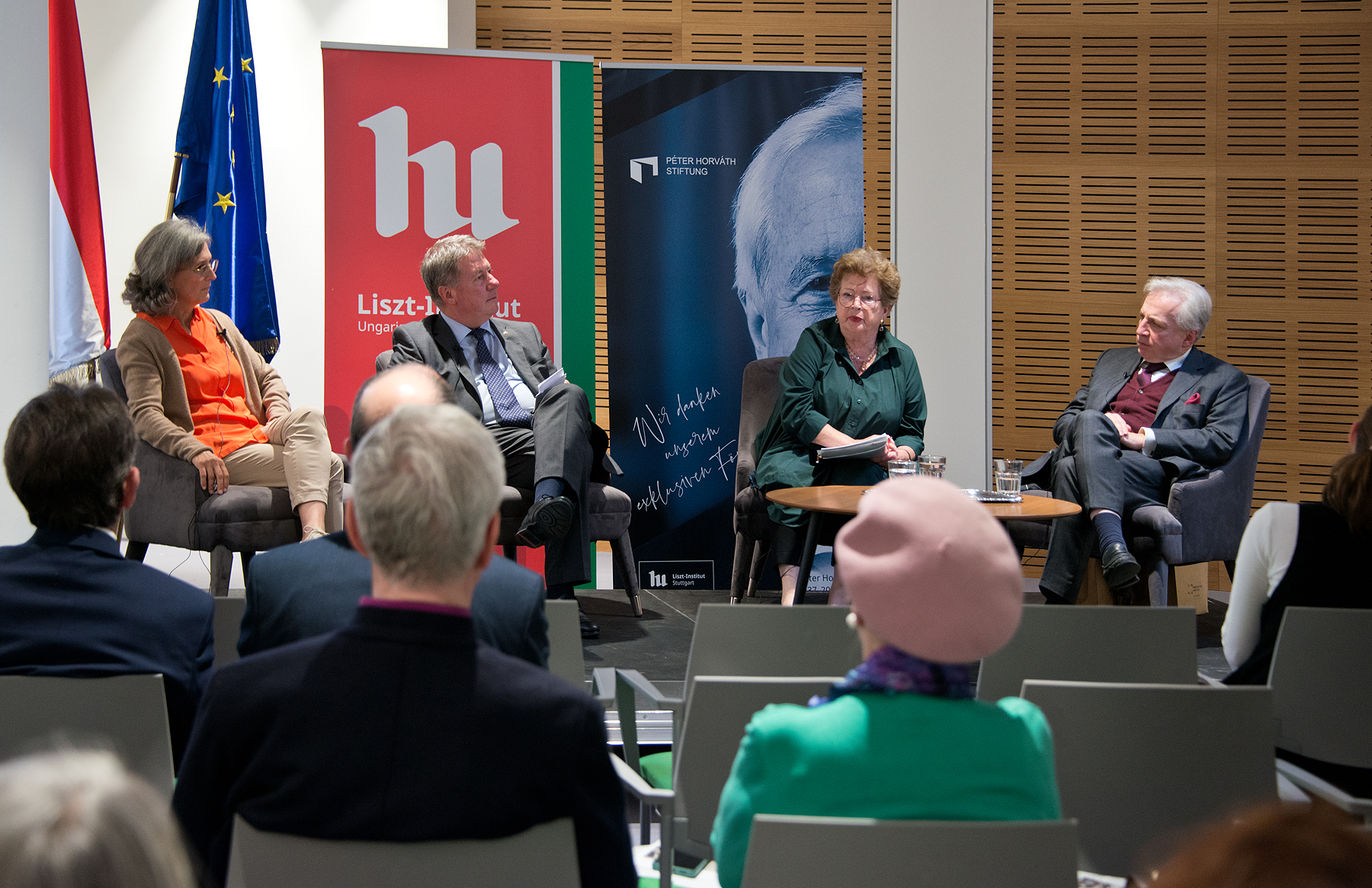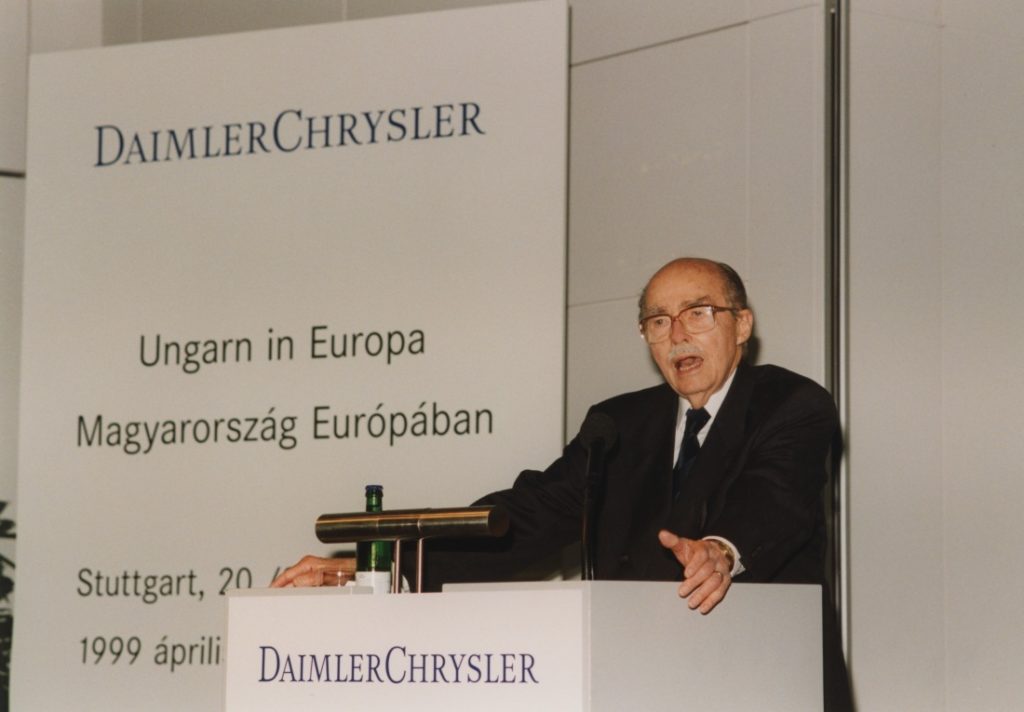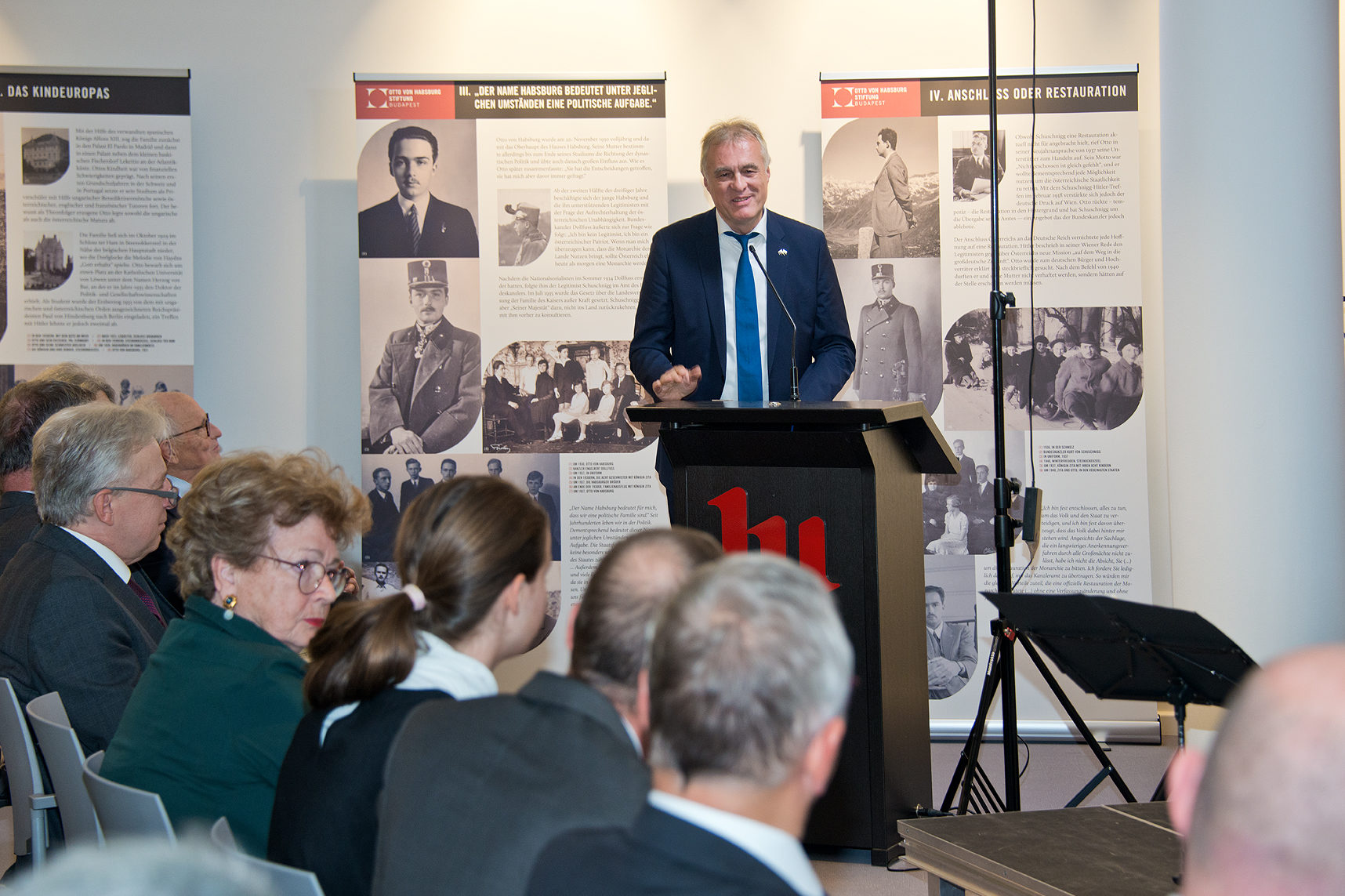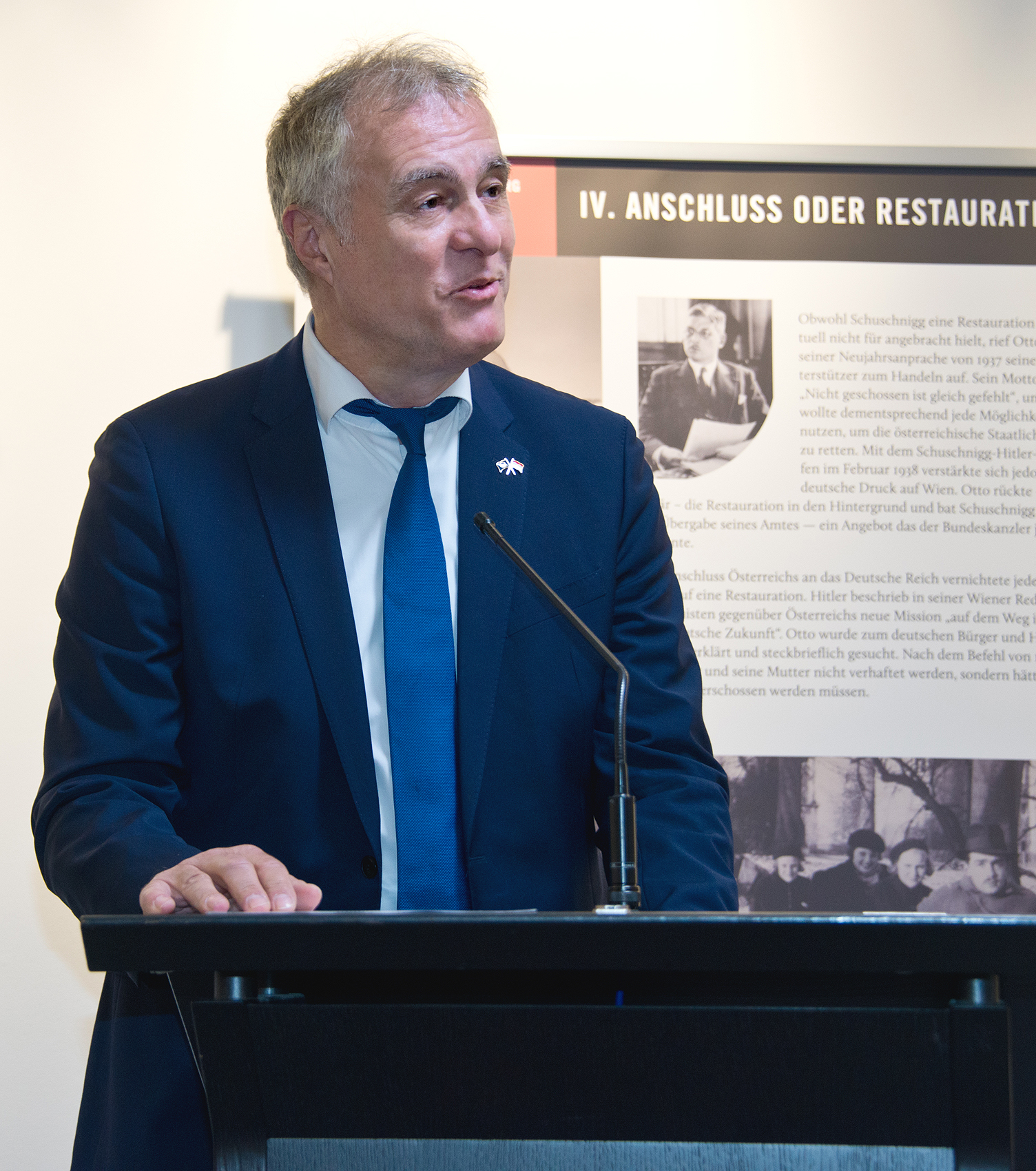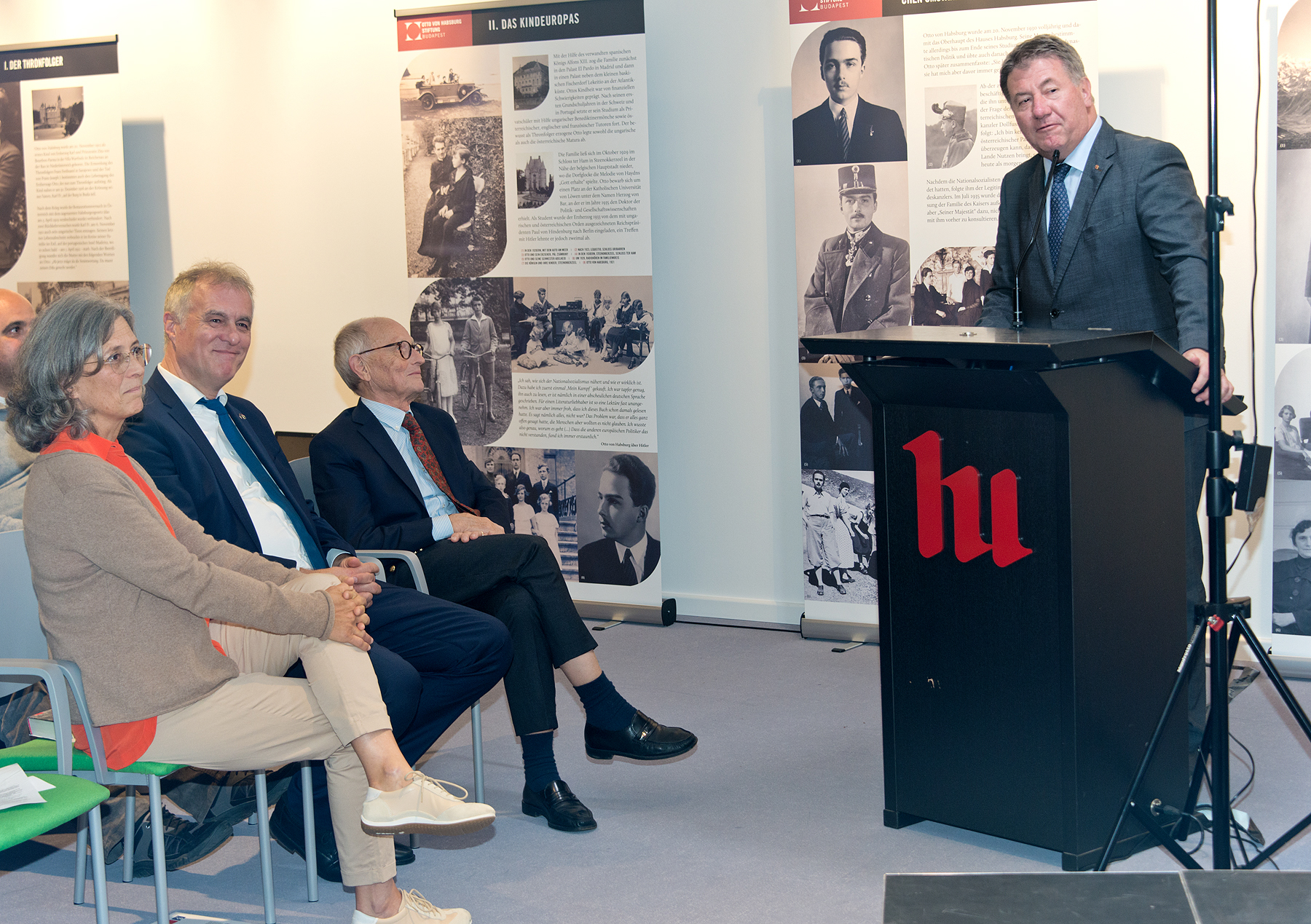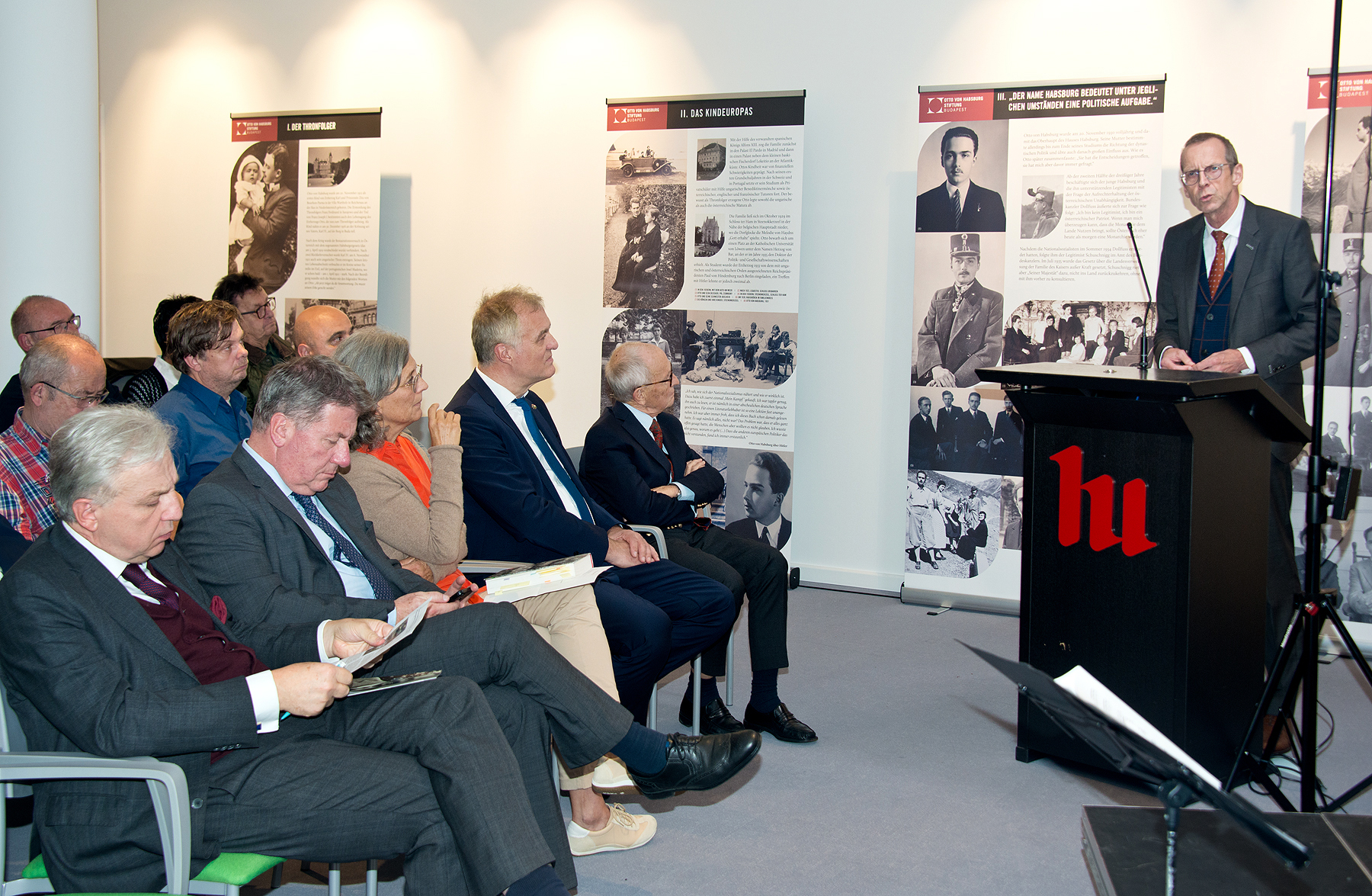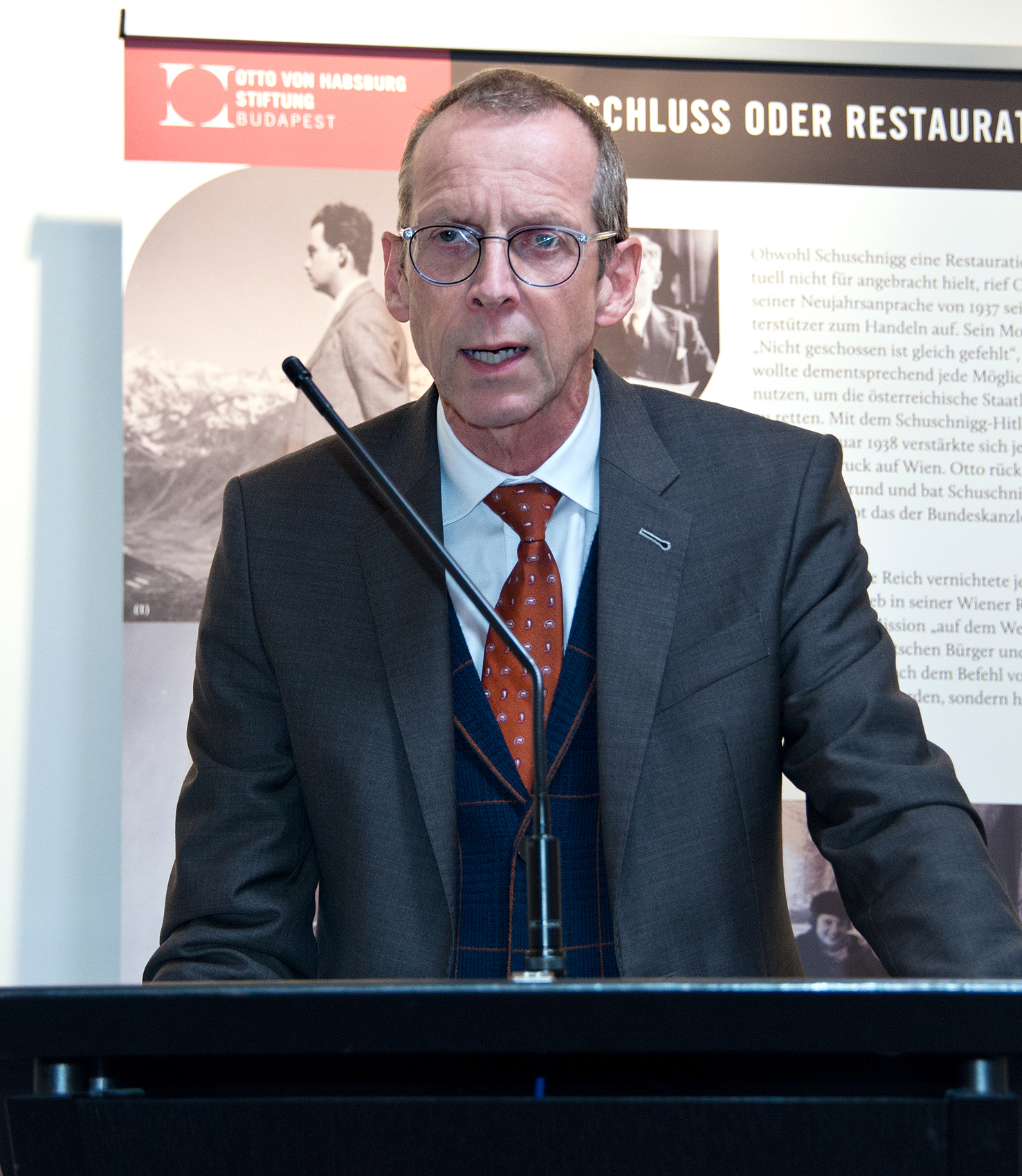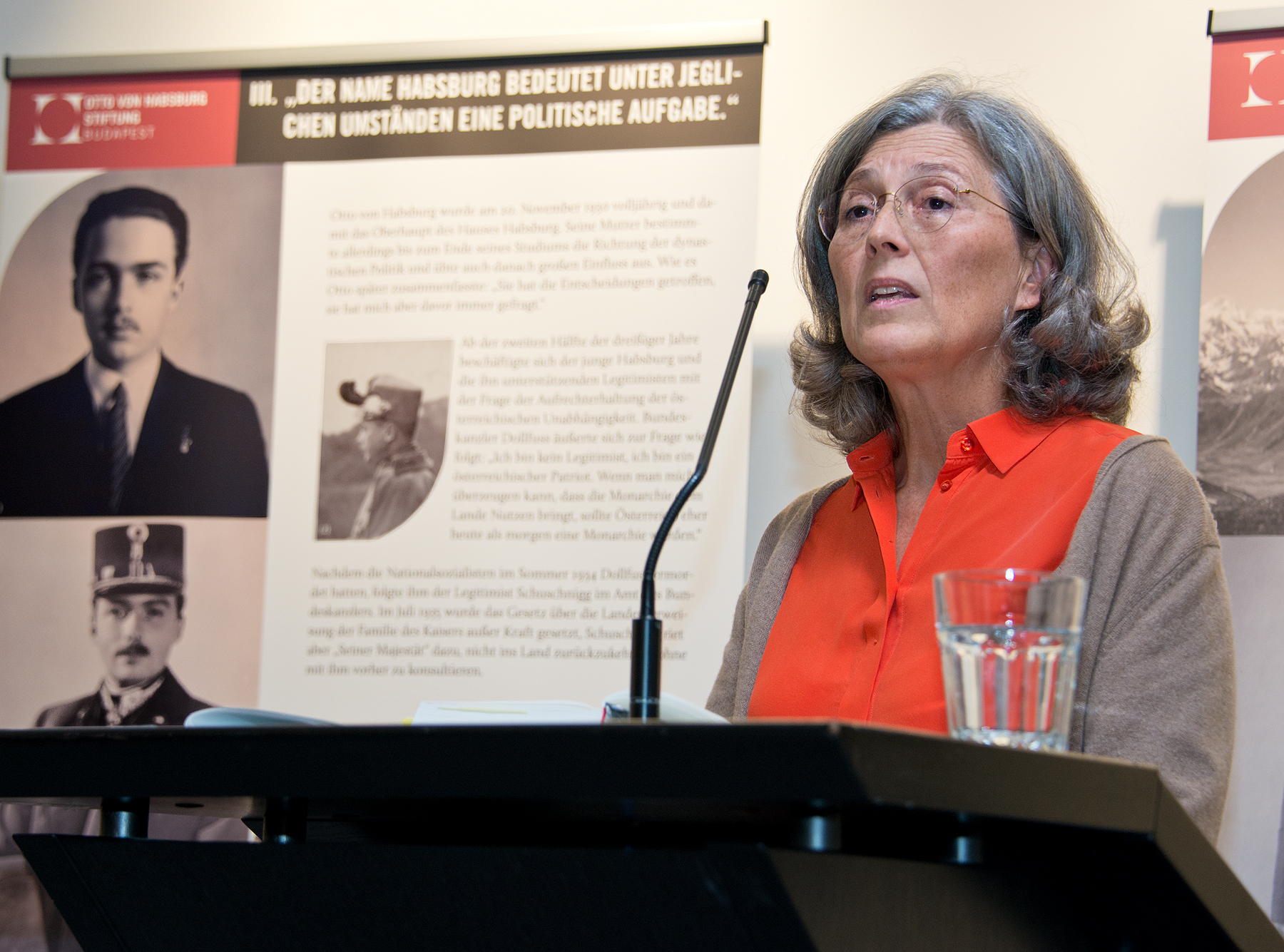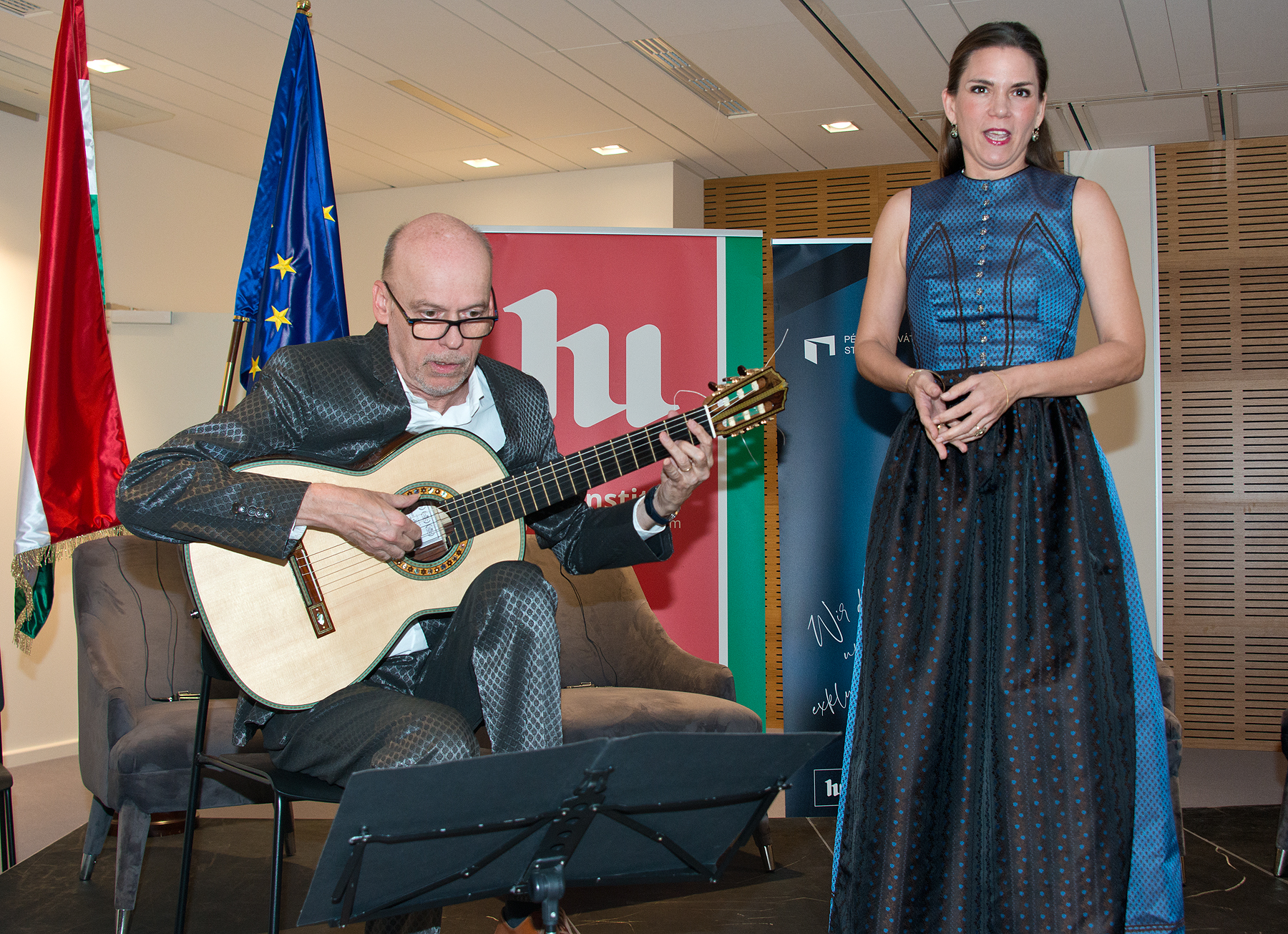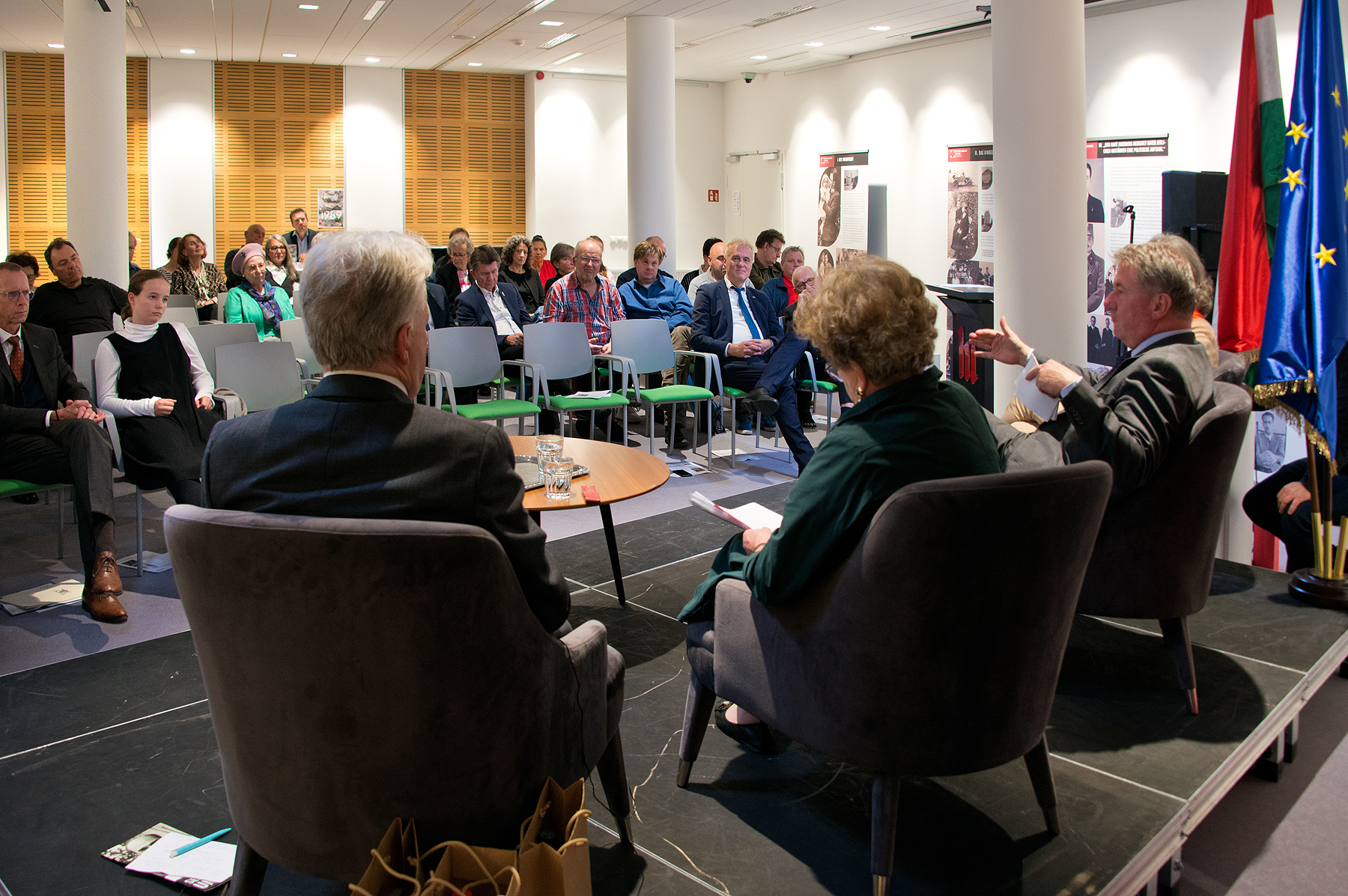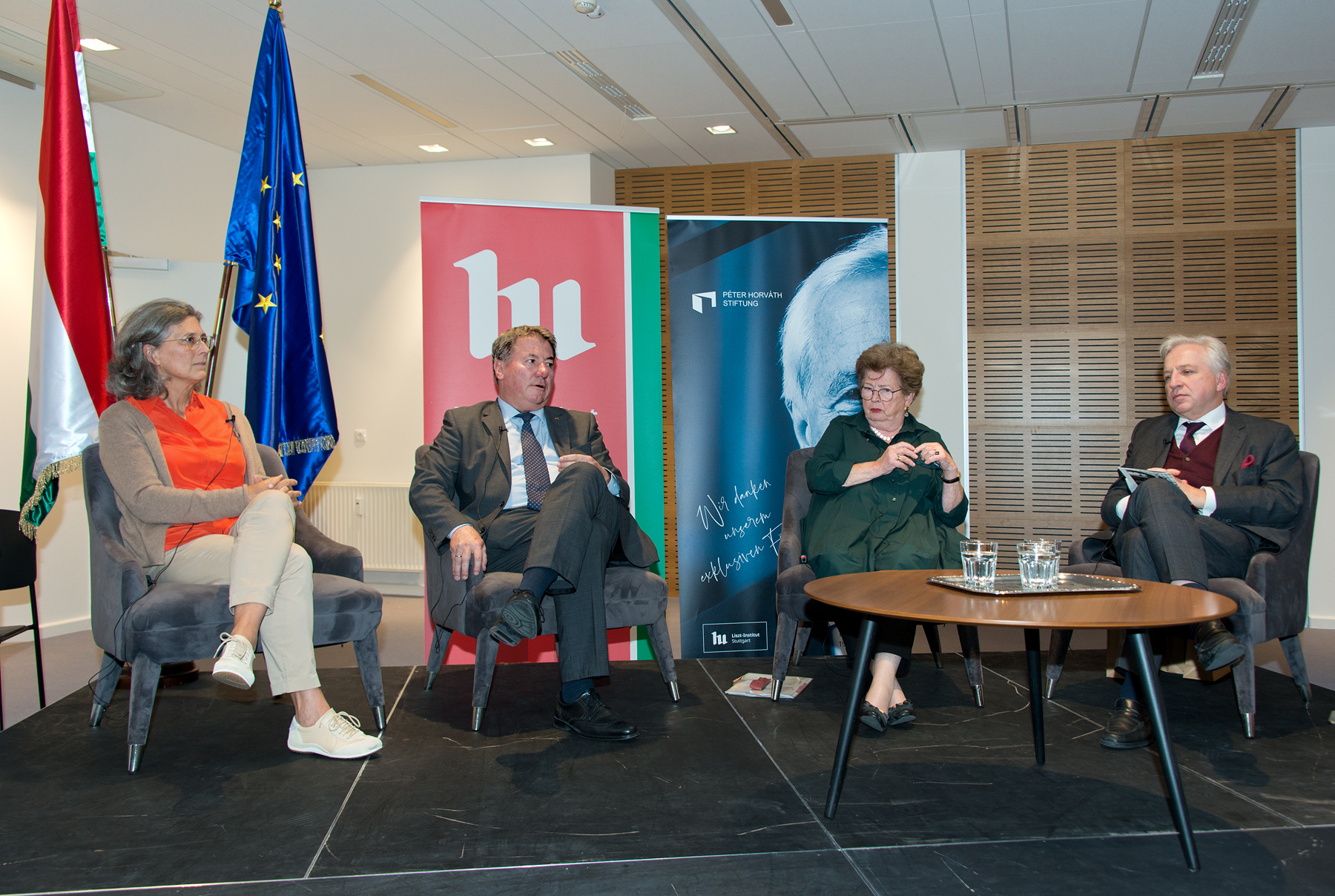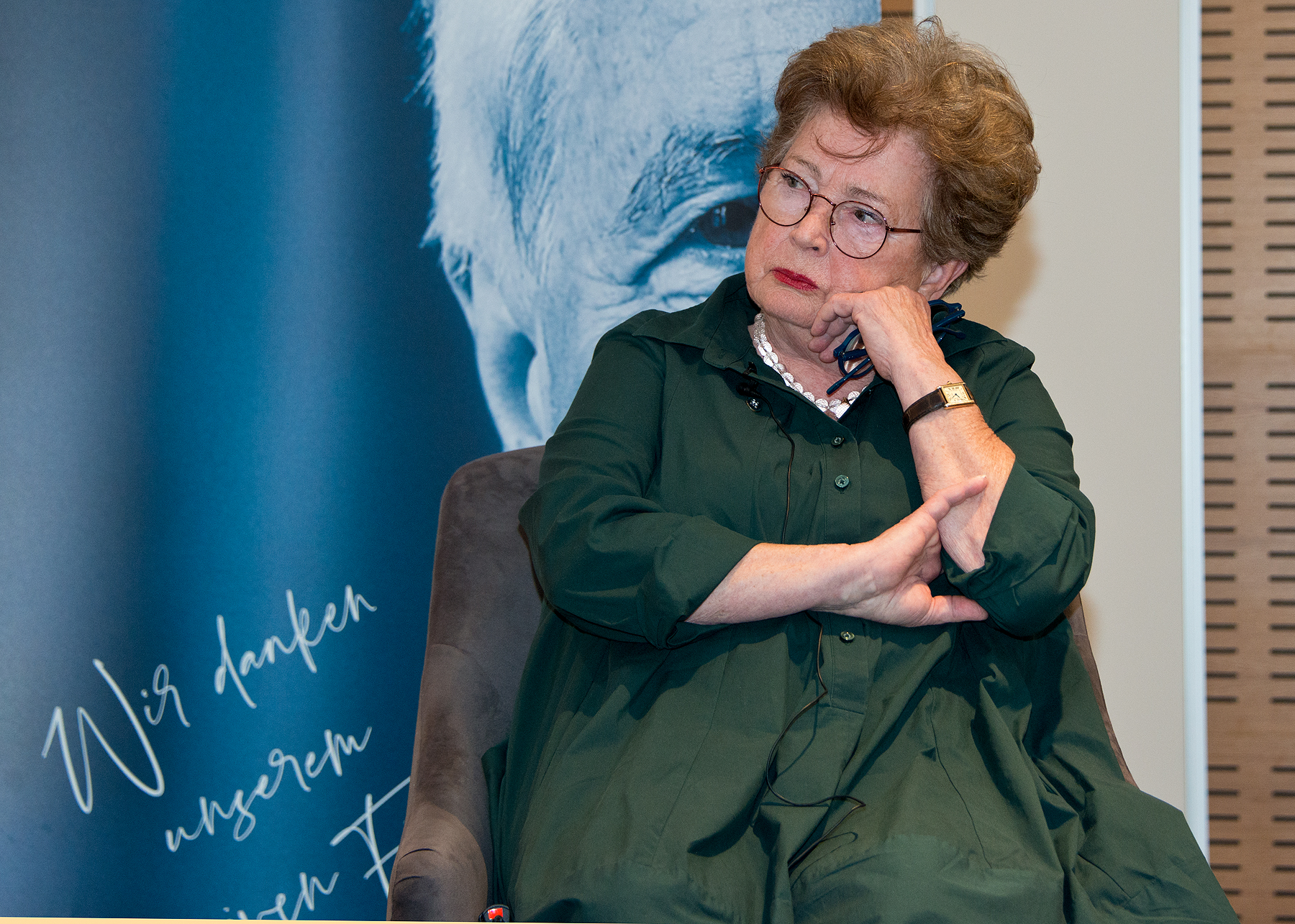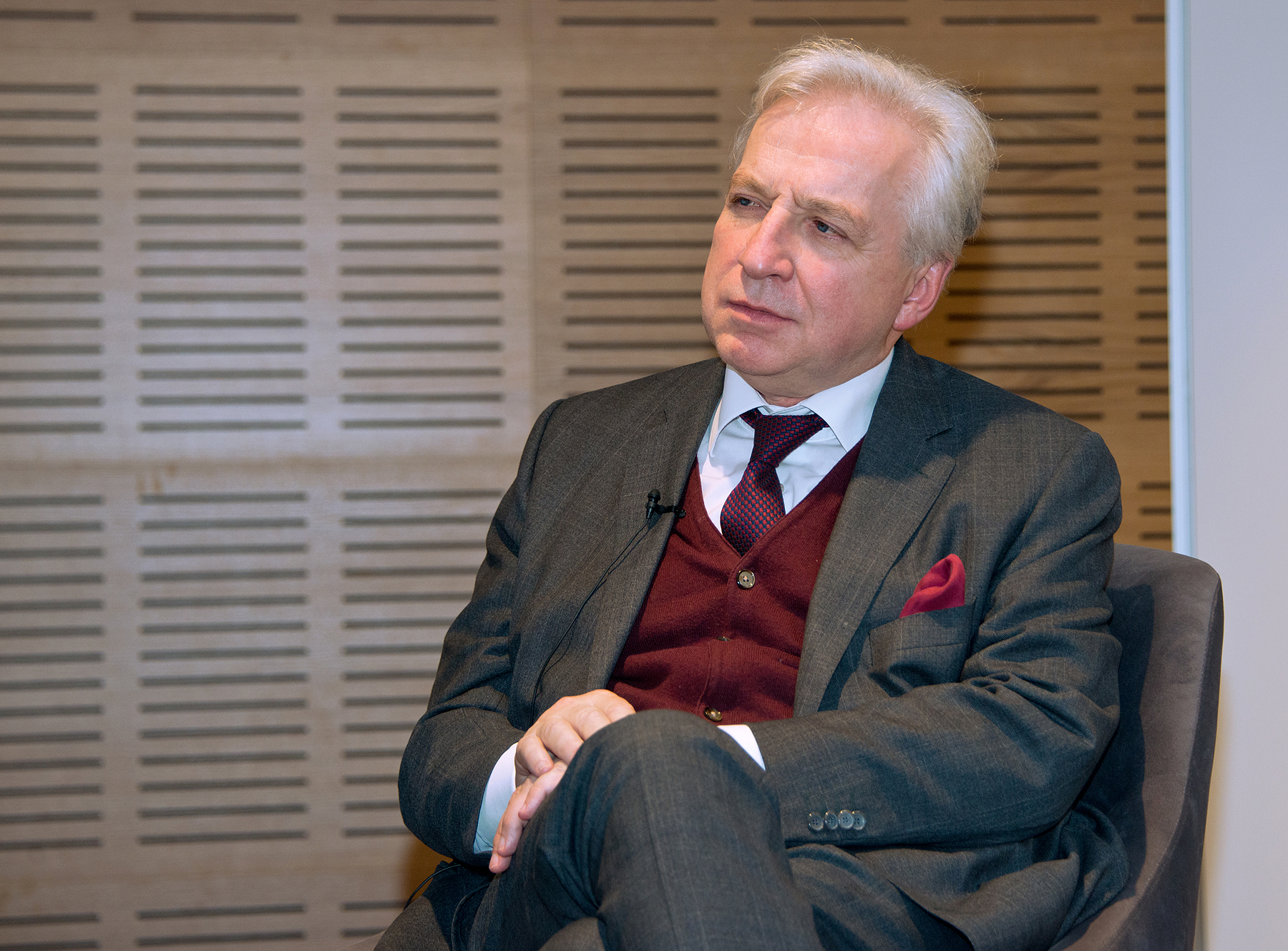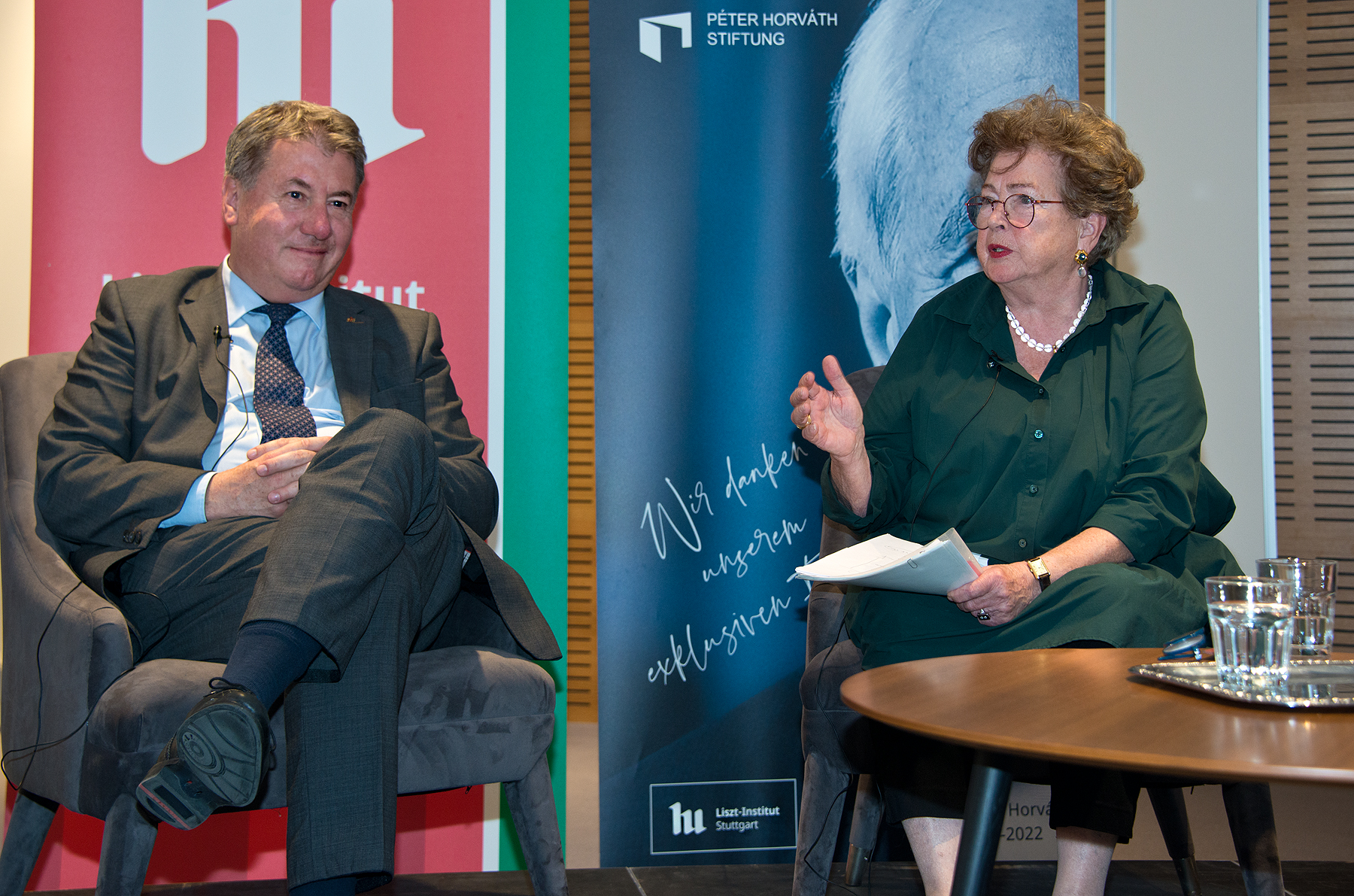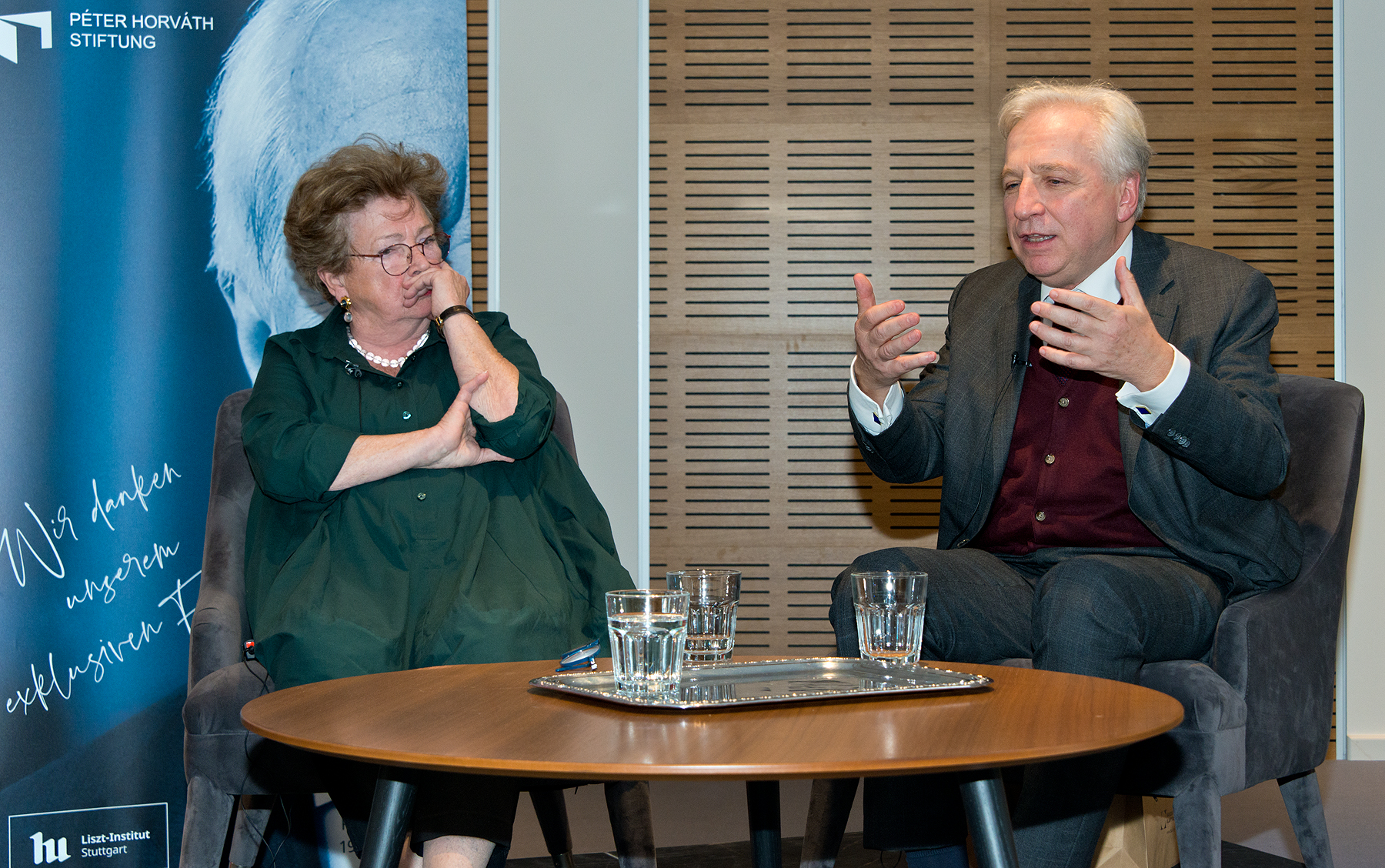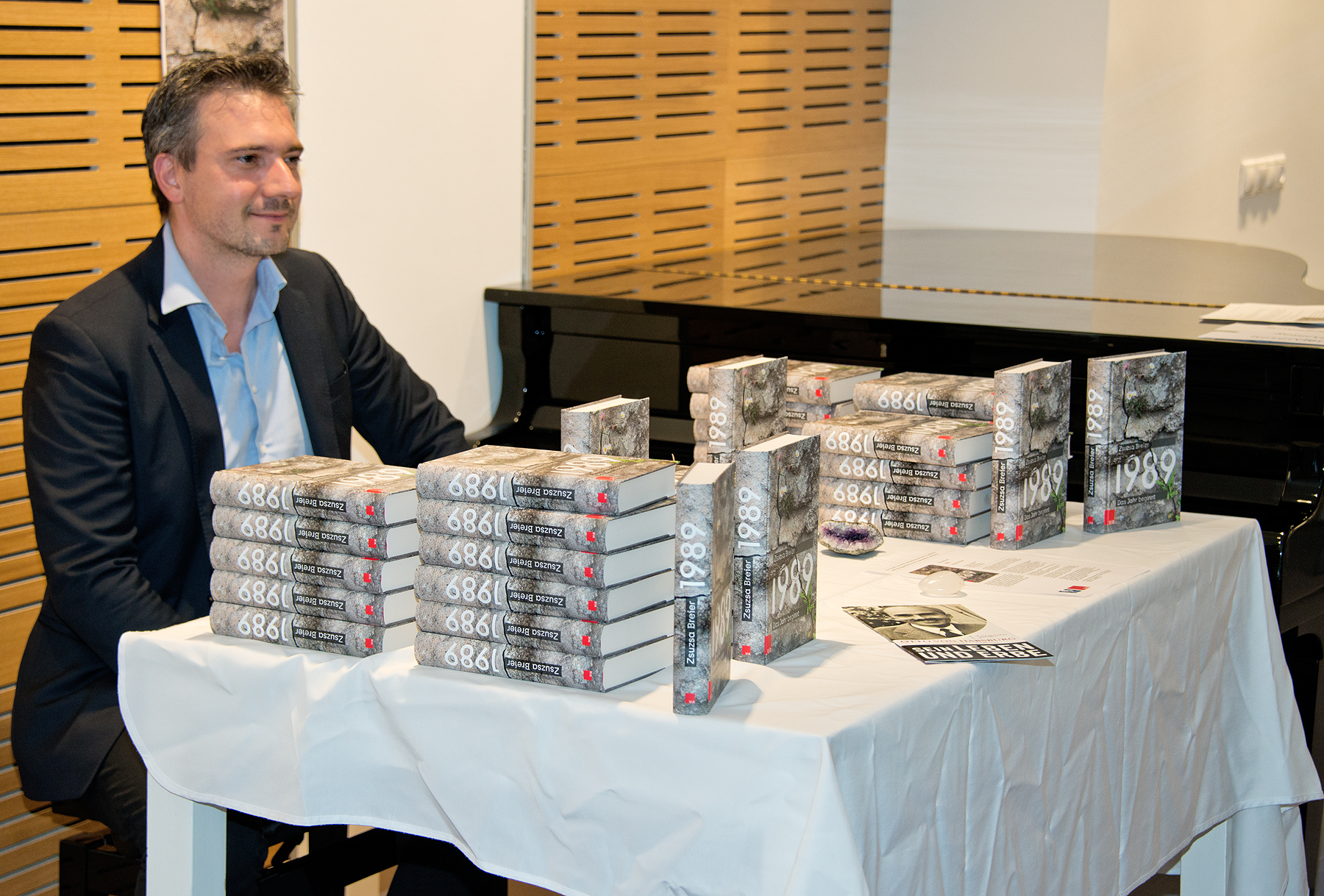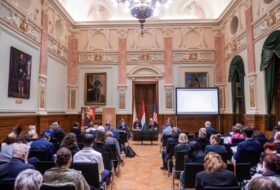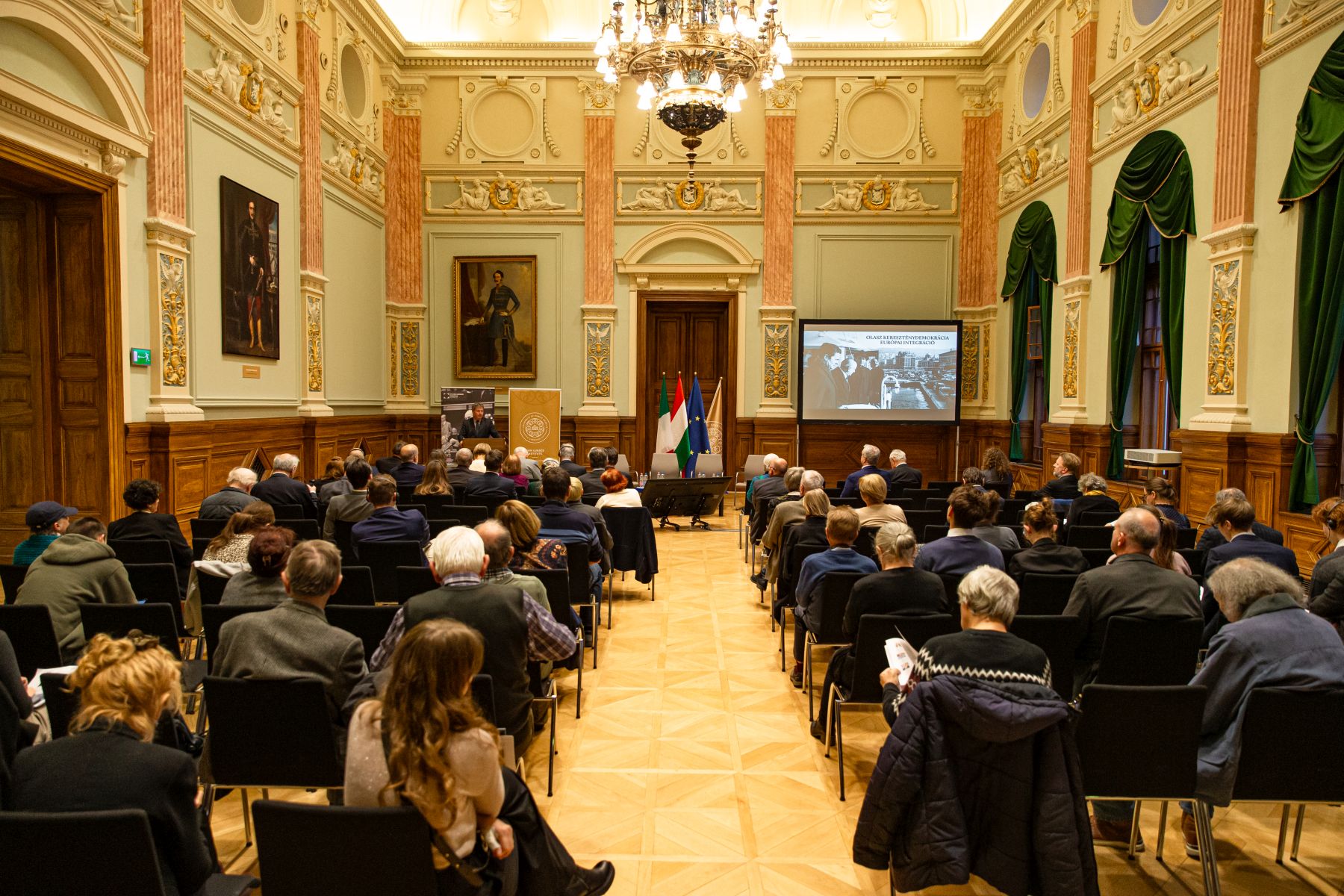Although Otto von Habsburg found his political home in Bavaria, he maintained good relations with neighbouring Baden-Württemberg. He was a frequent guest at the local Pan-European Union events, visited various municipalities across the state on several occasions during the legislative election campaigns, and had close links with many leading politicians in the federal state. Therefore, the promotion of his activities has a specific regional, federal and European relevance in the state.
Otto von Habsburg giving a speech at a DaimlerChrysler symposium, 21 April 1999, Stuttgart.
However, our early autumn programmes were not only important in showcasing Otto von Habsburg’s political legacy but also provided an opportunity to reiterate the diversity and significance of the historical, economic and cultural ties connecting Hungary and the southern German province.
Against this background, a panel discussion was held on 30 September, organised jointly with the Liszt Institute in Stuttgart, to highlight aspects of Otto von Habsburg’s extensive intellectual legacy that are particularly relevant to today’s political thought and action. Dezső Szabó, Head of the Hungarian Cultural Centre Stuttgart, recalled in his welcome speech a personal experience from November 1989, when, a few days before the fall of the Berlin Wall, Otto von Habsburg’s encouragement strengthened his belief in freedom. In his subsequent exposé, Reiner Moser, Director of the Ministry of the Interior of Baden-Württemberg, recalled the key moments in the life of Otto von Habsburg, highlighting the political legacy of the former MEP, and drew attention to its topicality.
Gergely Prőhle introduced our Foundation and described the most notable personal and professional contacts and institutional backgrounds that played a decisive role in the selection of speakers who all have strong ties to Hungary. During the following unconventional round-table discussion, participants reflected on excerpts from the latest book by Zsuzsa Breier, former Hungarian diplomat and State Secretary for European Affairs of the State of Hesse, which focuses on the events of 1989. After the author readings, Gergely Prőhle moderated a panel featuring insights from politicians with an excellent knowledge of Hungarian-German relations, Christoph Palmer, former Minister of State of Baden-Württemberg, and Ursula Seiler–Albring, former Federal Minister of State for Foreign Affairs and Ambassador to Germany.
Alongside recollecting the events surrounding the regime change, including the fall of the Berlin Wall and the official proclamation of German unity, reflections on Otto von Habsburg’s work and political legacy were further elaborated, bearing valuable lessons for today’s policymakers. At the same time, the current state of German-Hungarian affairs was also a key point of discussion. It was suggested that if an opinion poll had been carried out at the time of the accession of the Central European countries in 2004 to determine which candidate country Germans would have been most enthusiastic about, Hungary would undoubtedly have been at the top of the list. Although relations between the two countries have changed a lot recently, all participants agreed that it is essential to keep the dialogue going despite the current political differences and disputes to improve cooperation.
